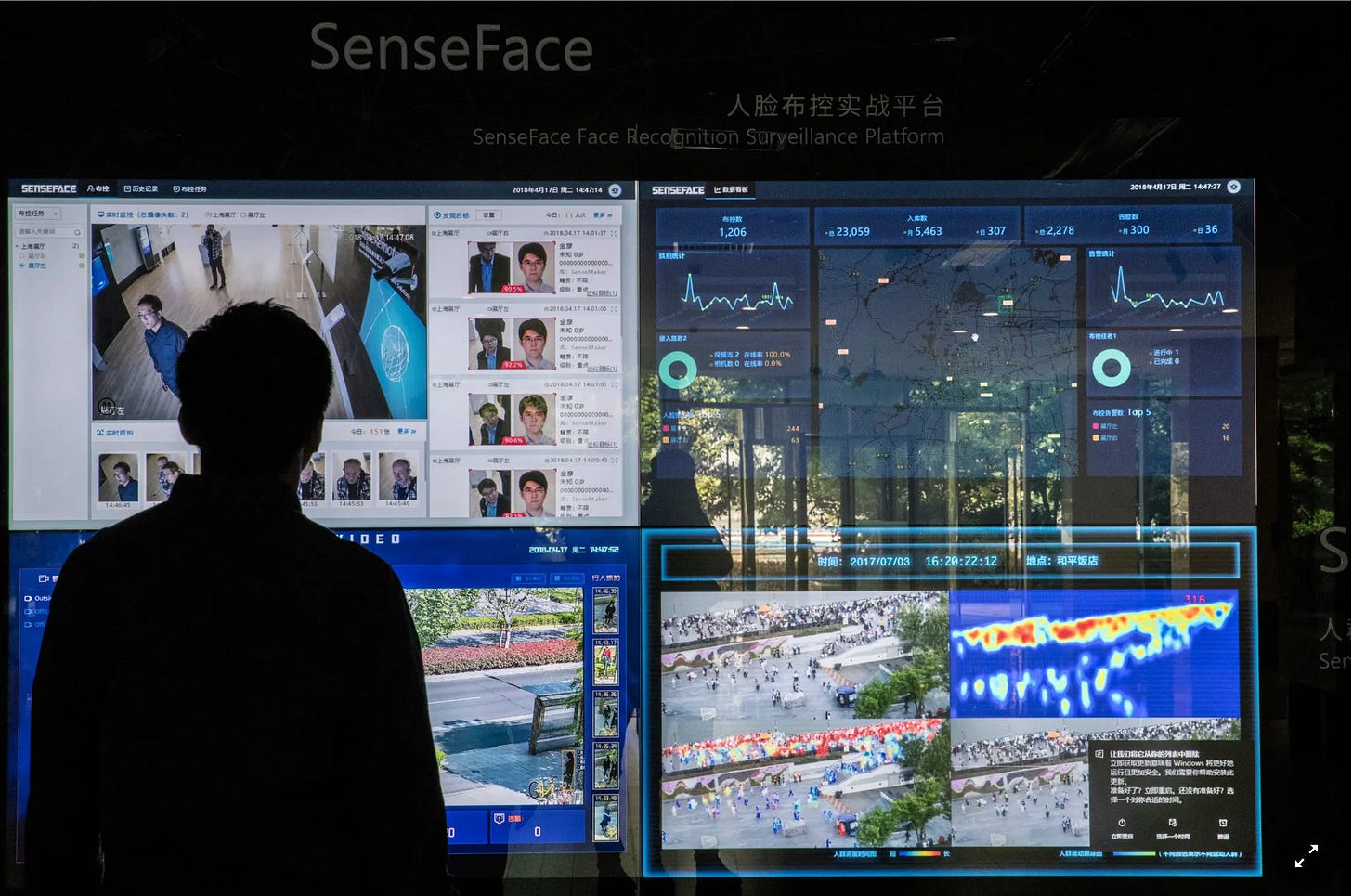Beating Beijing Starts at School
How Educating for Unity, Egalitarianism, and Strategic Competitiveness Can Help the U.S. Prevail
Chinese Leader Xi JinPing took “rare direct aim” at the United States on Monday and “issued an unusually blunt rebuke of U.S. policy,” according to The Wall Street Journal. “Western countries — led by the U.S. — have implemented all-round containment, encirclement and suppression against us, bringing unprecedentedly severe challenges to our country’s development,” said Xi, general secretary of the Chinese Communist Party (CCP).
Setting aside the dubious nature of Xi’s claim, his use of the term “containment” conjures up images of the Cold War, a type of conflict many Americans may have hoped was history. Unfortunately, leading experts in the United States say that’s exactly what we confront now in the competition with the CCP.
On October 4, 1957, the Soviet Union successfully launched Sputnik-1, the earth’s first man-made satellite, fueling fears regarding Soviet military-technological supremacy and sparking seismic reforms in American education that helped the U.S. win the “Space Race” and ultimately the Cold War.

The 200-foot tall Chinese spy balloon that floated across the continental United States and loitered over sensitive national security sites a few weeks ago should serve as a Sputnik-like wakeup call that we are now in a new type of cold-war competition. This time, we face an even more formidable adversary – a geopolitical challenge that once again requires critical updates and improvements in American education.
If the United States plans to remain a global superpower that can compete with the likes of Communist China, it will need to embrace this “Sputnik moment” and acknowledge the vital national security role of American education.
Leaders will need to institute serious and sweeping changes to ensure schools provide a revitalized education that unites the American people, facilitates the flourishing of all citizens, and produces educated and skilled contributors able to contend with evolving technologies and an increasingly competitive global labor market. In short, America will need to do a better job of educating for unity, egalitarianism, and strategic preparedness as a matter of maintaining its strength as a nation.
It’s no secret that America is mired in a period of intense political polarization and ideological conflict that many consider a “culture war”. While some of these dynamics have long been part of American political life to some degree, a dangerous new tribalism has emerged that erodes national unity. “Growing shares in each party now describe those in the other party as more closed-minded, dishonest, immoral and unintelligent than other Americans,” according to the Pew Research Center. Another study by Pew found that “ideological divisions over cultural issues are far wider in the U.S. than in the UK, France and Germany.”
A divided America is a weakened America - and that’s a gift to the Chinese Communist Party.
The United States confronts a generational conflict with China that will play an outsized role in determining whether a democratic or authoritarian model will predominate. Those who value freedom should not be neutral in this competition.
As a vital first step, we need to educate young Americans in ways that unify rather than divide.
Where to begin?
At a minimum, we should develop common national guidelines for teaching the Declaration of Independence, Constitution, and Bill of Rights.
A shared national understanding of the “Charters of Freedom” and their full historical context can help unify Americans by instilling a renewed sense of national identity and a shared commitment to preserving and improving this extraordinary American experiment in constitutional democracy. While we need to fully acknowledge the shortcomings in our nation’s history as a means to promote healing, we also need to celebrate the blessings we do enjoy as Americans. That’s an educational agenda Americans of all backgrounds should be able to rally around.
After all, America needs citizens willing to defend it.
Unifying around the principles in the Declaration of Independence and the rule of law codified in the Constitution, however, may not be enough to end culture wars and counter rising socio-economic inequality after a global pandemic. America also needs to cultivate and advance egalitarianism (equality under God or at least under the law), evidence-based reasoning, and empathy toward fellow human beings.
The Harkness Method, a distinctive version of the roundtable discussion, offers one way to do this. I employed this approach successfully in small private school classrooms and in public high school classrooms of more than 30 students.
In my experience, the Harkness Method is particularly effective when teaching humanities courses. Students adhere to an essential etiquette that may at first seem somewhat pedantic, but actually builds the mindset and language necessary for a diverse democratic society to thrive: Respect other voices; maintain composure; invite quieter students to join the conversation; and avoid interrupting and monopolizing airtime. Students learn to appreciate probing questions and dissent not as threats but as opportunities to arrive at more complete, nuanced understandings. Put simply, students learn how to participate constructively in a rambunctious democratic republic.
Discrimination unjustly prevents human flourishing and causes painful fissures in American society. These shortcomings should be addressed because that’s the right thing to do. They should also be addressed because when we fall short of its ideals, it provides America’s adversaries vulnerabilities to exploit.
On September 24, 1957, just weeks before the Soviet Union launched Sputnik, President Dwight Eisenhower delivered a televised address informing the nation that he had ordered troops from the 101st Airborne Division to protect and escort nine African-American students to school in Little Rock, Arkansas. “Our enemies are gloating over this incident and using it everywhere to misrepresent our whole nation,” the president warned.
We should not be surprised if the Chinese Communist Party increasingly employs some version of the Soviet playbook.
Inspiring unity and teaching empathy and egalitarianism are essential to preparing America to compete in the generational competition with China, but they are not enough. We must also have the means to deter and defeat aggression.
And that requires developing human capital not only through educating in the humanities but by educating the world’s best scientists, engineers, and technologists as well – and in sufficient quantities.
How will the United States stay strategically competitive?
At minimum, we need more schools such as Thomas Jefferson High School for Science and Technology in Northern Virginia – not fewer. And while much of America’s educational infrastructure has recently focused attention on equity issues, we must also continue to reward merit, encourage academic excellence, and serve gifted students well.
Many of these talented young minds will need to compete in an emerging field whose arrival and transformative power pose daunting challenges and significant possibilities.
Consider artificial intelligence (AI).
Recent research “reveals that China’s Ministry of Education is rapidly implementing AI curricula across all education levels and has even mandated high schools to teach AI coursework since 2018,” reported Kayla Goode and Dahlia Peterson from Georgetown University’s Center for Security and Emerging Technology. “At the postsecondary level, China’s progress appears even more impressive. In 2019, the Ministry of Education standardized an undergraduate AI major, which today is offered at 345 universities and has been the most popular new major in China.” If Goode and Peterson are correct that “whoever leads AI will lead globally,” then America will need to accelerate its efforts.
The CCP is using AI to oppress its own people and to ensure its military has superior capabilities.
Meanwhile, in the United States, it seems too few appreciate the national security consequences of AI. Indeed, many Americans are just getting acquainted with AI in a parlor-game sort of way.
While there are serious issues related to AI and academic integrity, America’s schools and universities may have no choice but to quickly embrace AI education as a matter of national security.
U.S. schools must educate for unity, egalitarianism, and strategic preparedness as a means of protecting and sustaining American strength, freedom, and prosperity. U.S. leaders should recognize the broader national security threat posed by the crisis in education – and get serious about reform.
“If Americans treated education as if their future depended on it, they would look for far-reaching overhauls, not marginal changes,” wrote American Enterprise Institute (AEI) scholars Nicholas Eberstadt and Evan Abramsky in September 2022 in Foreign Affairs. “Education is a crucial component of human capital and, by extension, of national might.”
Eberstadt and Abramsky are right. That’s why American education should not miss this “Sputnik moment.”
Until the next post,
Antonette







